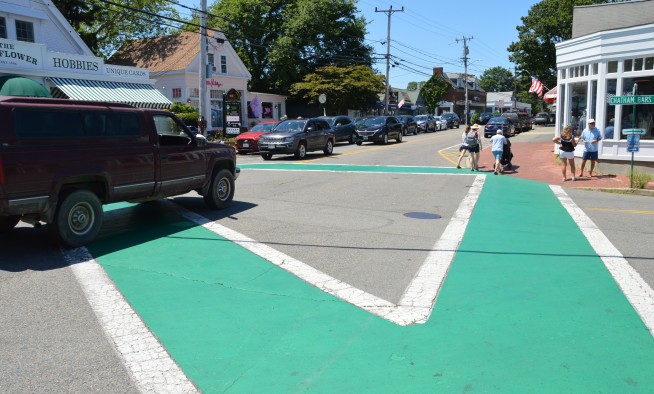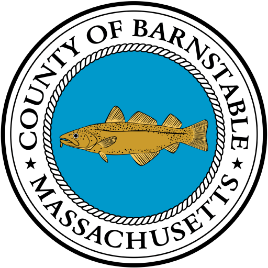For Immediate Release: Cape Cod Businesses Reporting Impacts due to COVID-19 Pandemic

Cape Cod Commission and Cape Cod Chamber of Commerce release preliminary business survey data
FOR IMMEDIATE RELEASE (June 15, 2020) -- Preliminary results from a survey issued to local business owners by the Cape Cod Commission and the Cape Cod Chamber of Commerce suggest severe impacts to our business community due to COVID-19. Employers are navigating new health, safety, and reopening regulations and adjusting expectations for a tempered summer season.
To date, over 350 business owners with businesses in all 15 Cape Cod towns have responded to the survey, representing industries including accommodations, retail, and restaurants, catering, food/beverage services, construction, real estate, health care, and recreation.
These preliminary results show a decline in customers and sales, along with reduced hours of operation. While most closed businesses plan to reopen, some will remain shuttered and others are unsure.
Most businesses were able to avoid layoffs, and a small amount were able to transition to remote work, likely reflecting the need for workers to be on site in the top respondents’ industries: accommodations, retail, restaurants, catering, and food services. Over one-fourth of respondents furloughed employees.
Revenue loss is significant. Losses of more than 50%, some more than 100%, were reported by many respondents. The summer months will likely come with increased revenue for some businesses, but nearly 45% of respondents still anticipate revenue losses of more than 50% over the next six months, when compared with a typical year.
“Bookings at our hotels and short-term rentals showed a strong increase following Governor Baker’s announcement of Phase Two,” said Wendy Northcross, CEO of the Cape Cod Chamber of Commerce. “We are seeing signs of improvement as our local businesses begin to open.”
Survey respondents say the assistance they need most, beyond financial assistance, is help with communications and marketing. Operational assistance, such as technical support in marketing, financing, and management, was the second-highest identified non-financial need.
“We will continue to collect data through future iterations of this survey,” says Cape Cod Commission Executive Director Kristy Senatori. “Responses will be used to support economic recovery now and in the coming weeks and months, and can be leveraged by businesses, towns, and other organizations in future grant applications and reports.”
As we enter Part One of Phase Two of Governor Charlie Baker’s four-phased approach to reopening Massachusetts, we continue to work to support our businesses as they adapt to new and different operations.
Summary:
Survey respondents represent a wide range of local industries from across the Cape
- Over 350 respondents with businesses in all 15 Cape Cod towns; 90% are Barnstable County residents
- The number of years respondents have been in business on Cape Cod ranged from less than 1 to 100; the average is over 21 years
- The top 3 industries of respondents are Accommodations, Retail, and Restaurants/Catering, and the majority of the respondents were open year-round (72%)
- The top 3 impacts felt by the business community due to COVID-19 are decline in customers/clients (69%), decline in sales (64%), and hours of operations reduced (52%)
- 63% temporarily closed their business
- Of those businesses temporarily closed 74.6% plan on reopening, 19.8% are unsure, and about 5.6% do not anticipate reopening
- For those who were unsure about reopening:
- They were waiting for the safety guidelines from the state (educational institutions and beauty salons in particular voiced this concern)
- They wanted support in understanding how to keep staff and the public safe
- They were waiting for changes to restrictions around occupancy of indoor spaces (including offices, restaurants, and short-term rentals)
Challenges in retaining workforce
- Out of the businesses who responded, 28% furloughed staff and 29% laid off staff; 34% reduced employee hours
- Of those that furloughed or laid off staff, 65% of respondents anticipated those employees returning in 2020; 30% did not
- Respondents noted concern about their viability given the requirements in the Reopening Plan, unemployment compensation being better than wages, and reductions in tourism (among other comments)
- Several businesses noted that employees requiring a visa to work were unable to get them this year
- 21% of respondents transitioned employees to working remotely
Significant revenue loss
- Comparing April 2019 to April 2020, 66% saw revenue losses over 50%; 28% reported losses over 100%
- 44.5% still anticipate revenue losses of more than 50% over the next six months
Businesses desire help with communications and marketing
- The top resources being used to manage COVID-19 impacts are personal savings (62%), participating in a program to mitigate layoffs (e.g., Payroll Protection Program, Workshare, or Rapid Response) (38%), or Unemployment Insurance (for sole proprietors) (21%)
- Beyond financial assistance, the most needed support was communications/marketing/social media assistance (45%), followed by operational assistance (32%)
###
Related Posts




